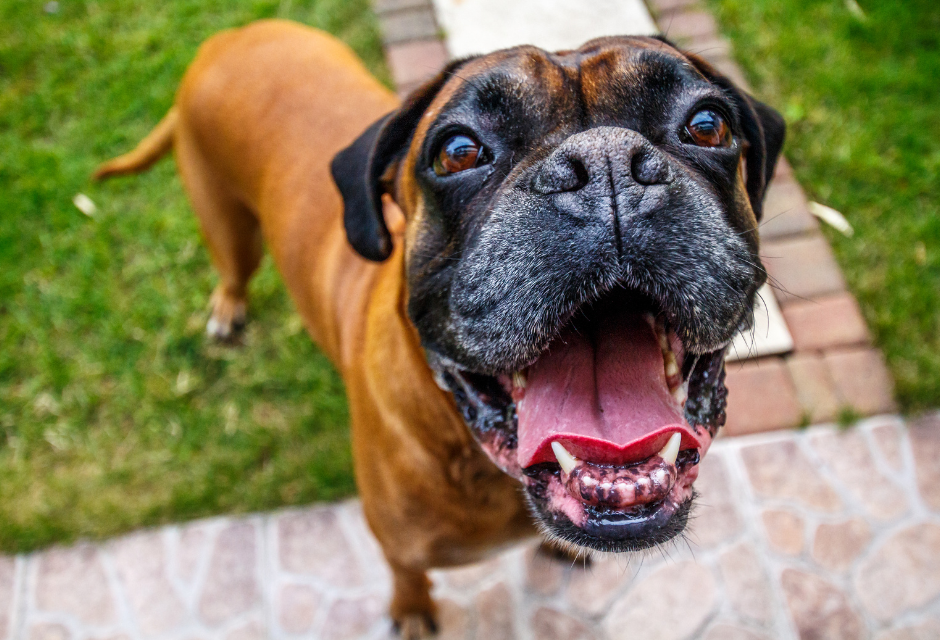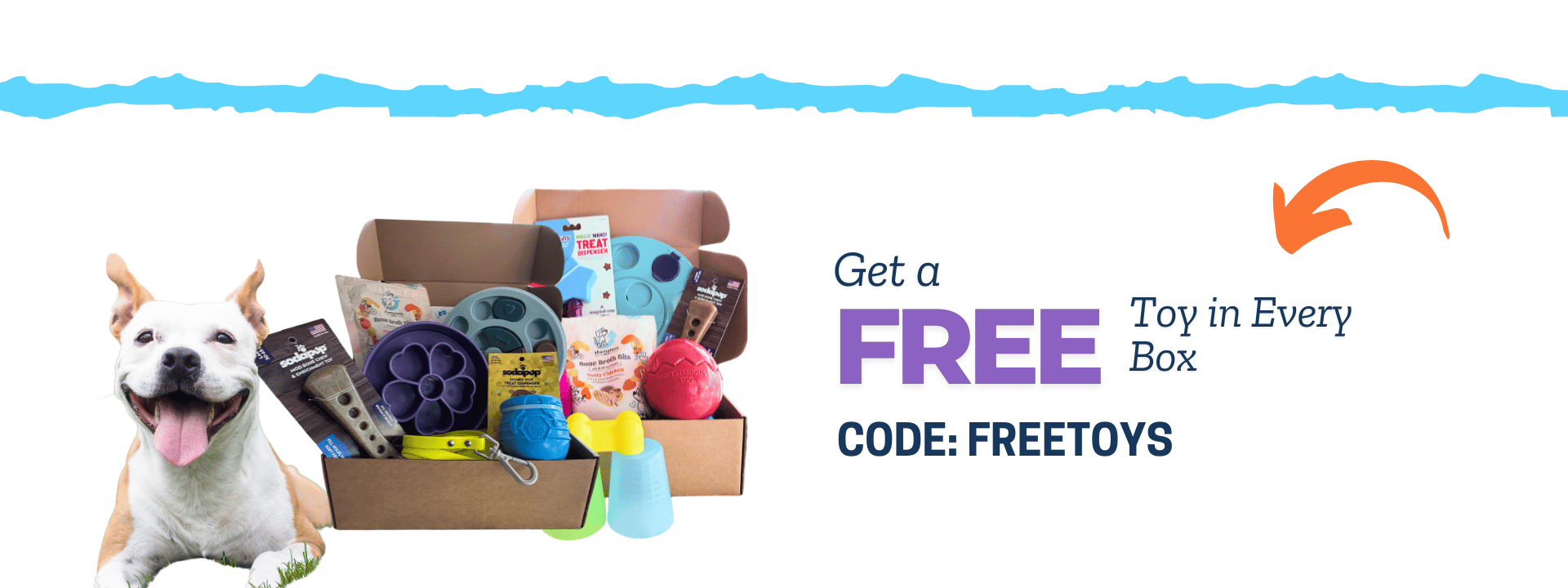So, it's no surprise that I am going to say enrichment is one of the most important things we provide to our dogs. Dogs are intelligent, curious, and energetic with a wide range of natural behaviors that need to be let out. Enrichment plays a big role in making sure that your dog can use those behaviors in a healthy, constructive way.
Why Do Dogs Need Enrichment?
1. Mental Stimulation:
Dogs possess these pretty impressive brains that I don't think we, as humans, will ever fully understand. With that brian, your dog needs to stay engaged or they can become bored, leading to anxiety, depression, and destructive behaviors. I always compare a dog to a toddler that is constantly being told "no", or being placed in a space where they can't touch anything or put anything in their mouth. When we deny any living thing access to the world in a way that is effective for them, they are sure to show us their frustrations.
2. Physical Exercise:
You know your dog needs physical activity. This is also important for maintaining their health, both physically and mentally. Enrichment activities can often incorporate exercise, which is great for helping to prevent obesity, support joint health, and improve cardiovascular fitness.
3. Emotional Well-being:
Did you know studies have proven that your dog is an emotional being? They sure are and it is important to make sure you are protecting and nurturing their emotional well-being. Enrichment activities will help prevent undesired behaviors from stress and anxiety by engaging in different activities. These activities can boost your dog’s mood and overall happiness. On top of boosting their mood, it also builds a stronger connection between you and your dog.
4. Behavioral Health:
I am not a dog trainer but I have worked with a ton of them for my dogs and foster dogs. There is always a place for training and obedience but I have learned over the years that sometimes, these behaviors that I wanted "corrected" with training, were causing deeper issues for my dogs. Dogs that lack enrichment can be more likely to develop behavioral problems such as excessive barking, chewing, and digging. When you can provide outlets so your dog can use their energy and those instincts, you can help prevent some of these issues.
5. Bonding With Your Dog
This was something that took me some time to realize. I used to look at enrichment toys as a way to distract my dog when they were "misbehaving" and I did not have time. While, in all honestly, I still use different enrichment techniques when I know my dogs need mental stimulation and I need to be less involved, I have more of a purpose behind the different activities.
When you provide your dog with enrichment toys or activities, you can plan it in a way that you work together, learn together, and grow together. You and your dog can have some much fun together and that connection you build on will last a lifetime for your pup.
Natural Behaviors and Enrichment
Your dog has a range of natural behaviors inherited from their wild ancestors. Yes, even though dogs have been domesticated for over 20 thousand years, their wild ancestor genetics are still in there! Enrichment activities should be set up to allow your dog to use these behaviors in a safe and controlled environment.
Some key behaviors that I focus on in the Canine Brain Games Enrichment Box:
1. Foraging:
In the wild, dogs would spend almost all of their time searching for food. Enrichment activities that mimic foraging, such as puzzle feeders and scent games, engage those natural hunting instincts and are a great way to work your pup's brain.
2. Chewing:
Did you ever have a puppy or even an adult dog that would chew on everything? We have one dog right now, the stories I could share of what he has tried to chew on. With him, I have to make sure there is always a hard chew toy within eyesight. If he can't find one when he is ready, he will grab whatever is next to him (even scissors, yup scissors).
Chewing is a natural and necessary behavior for dogs, helping to keep their teeth clean and jaws strong. It can also reduce stress and relieve boredom. This is why I believe it is an important part of the Canine Brain Games box.
3. Digging:
Digging is another instinctive behavior, often related to creating a comfortable resting place or searching for hidden food. Designated digging areas or sandboxes can provide an appropriate outlet for this behavior.
4. Social Interaction:
Dogs are social animals that thrive on interaction with other dogs and humans. Playdates, dog park visits, and interactive play with family members fulfill their need for social engagement. Even for your pup that may not like to be around other animals or people, they still need some form of social interaction. This can be done without other people or animals involved through exploration activities.
5. Exploration:
Dogs are naturally curious and enjoy exploring new environments. Walks in different locations, hiking trails, and even car rides can satisfy their exploratory instincts. Have you ever gone on a sniff walk with your dog? Using a long line, go for a walk and let your dog take the lead! Even if you don't make it out of the driveway, let your dog guide you with their nose.
You can also bring an object (sticks, rocks, or other natural objects) into your yard. Place it somewhere your dog would find it. They will pick up on the new scent and allow them a new experience in their yard.
Enrichment Activities to Encourage Natural Behaviors
1. Interactive Toys:
Puzzle toys, treat-dispensing balls, and interactive feeders challenge a dog’s mind and replicate foraging behaviors.
2. Scent Work:
Hide treats or toys around the house or yard to encourage your dog to use their keen sense of smell. Scent trails and nose work games are excellent ways to engage this natural ability.
3. Chew Toys:
Provide a variety of safe chew toys, bones, and dental chews to satisfy your dog’s need to chew.
4. Digging Areas:
Create a designated digging spot in your yard where your dog can dig freely. Bury toys or treats to make the activity more rewarding.
5. Social Play:
Arrange playdates with other dogs, visit dog parks, and engage in interactive play with your dog to meet their social needs.
6. New Experiences:
Regularly introduce your dog to new environments, sounds, and sights. This can include walks in different areas, visiting pet-friendly stores, and taking them on car rides.
Benefits of Embracing Natural Behaviors
Allowing your dog to express their natural behaviors through enrichment activities offers so many benefits:
Reduced Stress and Anxiety: Engaging in natural behaviors helps dogs manage stress and anxiety. Think about someone who may lack self-confidence and how they may interact with others in the world. That can lead to social anxiety. This can happen with our dogs as well.
Improved Physical Health: Activities that promote physical exercise support the overall health and fitness of your dog, and you too.
Enhanced Mental Agility: Let's keep your dog’s brain active and reduce the risk of cognitive decline. When you play brain games with your dog, you are positively impacting their cognitive abilities, at ALL life stages. From problem-solving skills to improved behaviors.
Stronger Bond: Enrichment activities are about you and your dog. These shared enrichment activities strengthen the bond between you and your dog, fostering trust and companionship.
Prevention over Reaction: When you have the knowledge and the ability to provide your dog with mental stimulation through enrichment, you are working to prevent undesired behaviors in your pup.
Enrichment is not just an optional luxury for dogs; it is a fundamental necessity that allows them to express their natural behaviors and live their lives in a meaningful way. It is like sending your child to school. When you understand the importance of enrichment and bringing those activities that cater to a dog’s instincts, you will see your dog build confidence, develop a stronger bond with you, and have an overall better well-being.
Ready to join?


